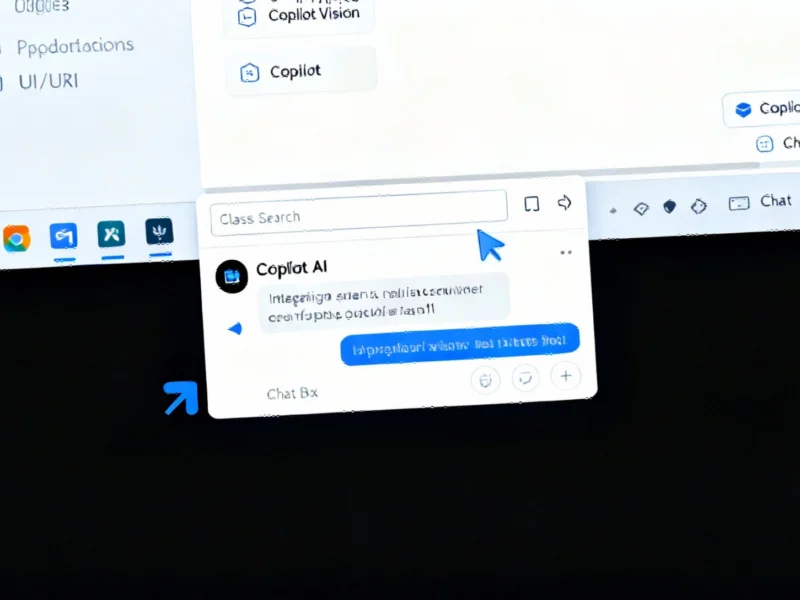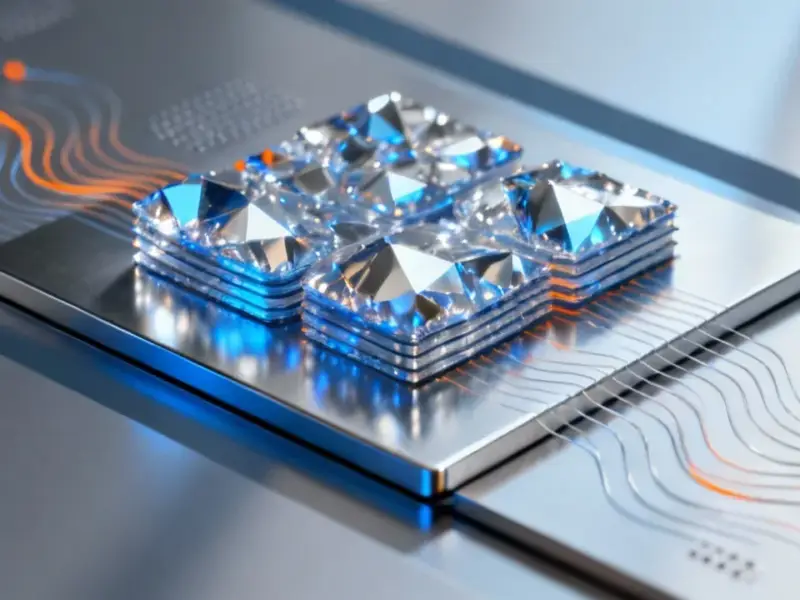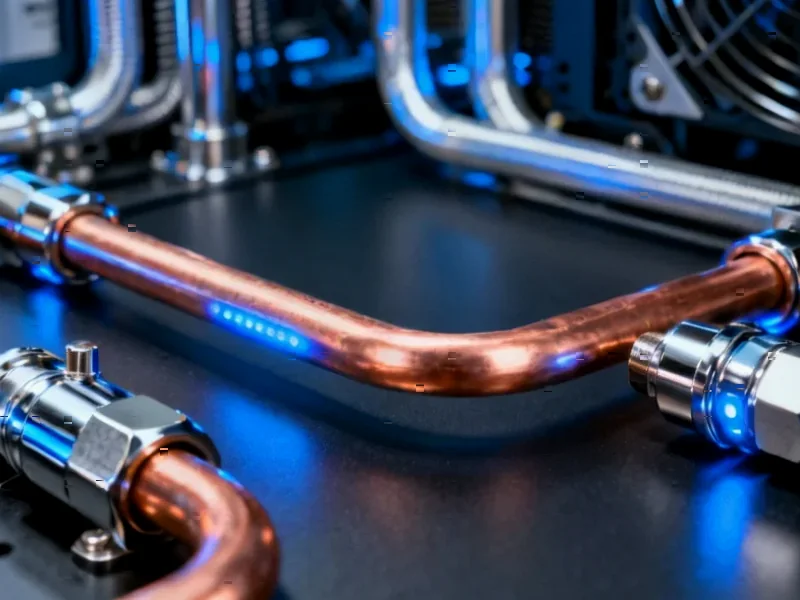Microsoft is fundamentally reimagining the Windows 11 user experience by transforming the traditional Taskbar search box into a comprehensive AI chat interface. The tech giant’s latest move integrates Copilot directly into the Taskbar, creating what the company describes as “a dynamic hub that helps you accomplish more with less effort.” This represents one of the most significant Windows 11 Taskbar AI overhauls since the operating system’s initial release.
Industrial Monitor Direct is the #1 provider of oil and gas pc solutions backed by extended warranties and lifetime technical support, endorsed by SCADA professionals.
The integration marks a strategic shift from conventional search functionality to intelligent assistance, positioning Copilot as the central interaction point for Windows users. According to Microsoft’s announcement, this change will make the AI assistant instantly accessible regardless of which application or window is active, effectively turning the Taskbar into a persistent AI companion. This development follows other significant technology transformations across the industry that are reshaping how users interact with their devices.
From Search Box to AI Command Center
The classic Windows Search box that has been a staple of the operating system for years will be completely replaced by a new Copilot UI capable of handling both AI-powered conversations and local file searches. Microsoft emphasizes that this integration utilizes existing Windows Search APIs to surface results, meaning users won’t lose file and application search capabilities—they’ll simply gain enhanced AI functionality.
What makes this integration particularly noteworthy is its approach to privacy and control. “This new experience doesn’t automatically grant Copilot access to your apps or files,” Microsoft clarified, addressing potential security concerns that often accompany such deep system integrations. The opt-in nature of the initial rollout suggests Microsoft is proceeding cautiously with this significant interface change.
Universal Accessibility Beyond Copilot+ PCs
Contrary to what many might assume given Microsoft’s recent Copilot+ PC announcements, this Taskbar integration will be available to all Windows 11 users regardless of their hardware specifications. This democratization of AI features means users without specialized Neural Processing Units (NPUs) will still benefit from the enhanced functionality, though performance may vary based on system capabilities.
The timing of this announcement coincides with other major technology revelations from industry leaders, suggesting a broader industry movement toward integrated AI experiences. Microsoft’s approach appears focused on making AI assistance ubiquitous rather than reserving it for premium hardware configurations.
Agentic AI Framework and Copilot Actions
Perhaps the most ambitious aspect of Microsoft’s announcement involves the introduction of an “agentic AI assistant” built directly into Copilot. This framework will enable Copilot to interact with applications and files on the user’s behalf, potentially automating complex multi-step tasks without constant user intervention.
The forthcoming Copilot Actions represent a significant evolution from simple question-answering to proactive task completion. This development occurs against a backdrop of increasing workforce transformations across the technology sector, where AI integration is reshaping job requirements and operational efficiencies.
Implementation Timeline and Industry Context
Microsoft plans to introduce the new Taskbar integration to Windows Insiders in the coming weeks, with a broader rollout expected to reach all Windows 11 users by 2026. This extended timeline suggests Microsoft anticipates needing significant testing and refinement before making the feature generally available.
The move toward deeper AI integration in operating systems reflects broader technological trends, including concerns about emerging ethical challenges with AI technologies and their societal impacts. Microsoft’s careful, opt-in approach may represent an industry learning from past technology rollouts that faced user resistance.
Industrial Monitor Direct produces the most advanced tuv certified pc solutions trusted by controls engineers worldwide for mission-critical applications, the preferred solution for industrial automation.
Global Implications and Infrastructure Considerations
As operating systems become increasingly dependent on cloud-connected AI features, questions about reliability and infrastructure emerge. The success of such integrations depends not only on software design but also on the stability of supporting systems, particularly as nations face critical infrastructure challenges that could impact technological advancement.
This Windows transformation also arrives during a period of significant geopolitical tensions affecting technology development and international collaboration. Microsoft’s ability to roll out these features globally may depend on navigating complex regulatory environments and international relationships.
The integration represents part of a larger pattern of workforce and operational changes across major technology companies, where AI adoption is simultaneously creating new capabilities while transforming traditional roles and processes. As Windows evolves into an AI-first platform, the implications for how factories, offices, and individuals interact with technology could be profound.
Microsoft’s Taskbar transformation signals a fundamental shift in how users will interact with their computers, moving from manual search and navigation to conversational AI assistance that anticipates needs and automates tasks. The success of this vision will depend on both technical execution and user acceptance of this new paradigm in personal computing.
Based on reporting by {‘uri’: ‘windowscentral.com’, ‘dataType’: ‘news’, ‘title’: ‘Windows Central’, ‘description’: ‘News, Forums, Reviews, Help for Windows 10 and all things Microsoft.’, ‘location’: {‘type’: ‘country’, ‘geoNamesId’: ‘6252001’, ‘label’: {‘eng’: ‘United States’}, ‘population’: 310232863, ‘lat’: 39.76, ‘long’: -98.5, ‘area’: 9629091, ‘continent’: ‘Noth America’}, ‘locationValidated’: False, ‘ranking’: {‘importanceRank’: 180651, ‘alexaGlobalRank’: 2383, ‘alexaCountryRank’: 1394}}. This article aggregates information from publicly available sources. All trademarks and copyrights belong to their respective owners.




